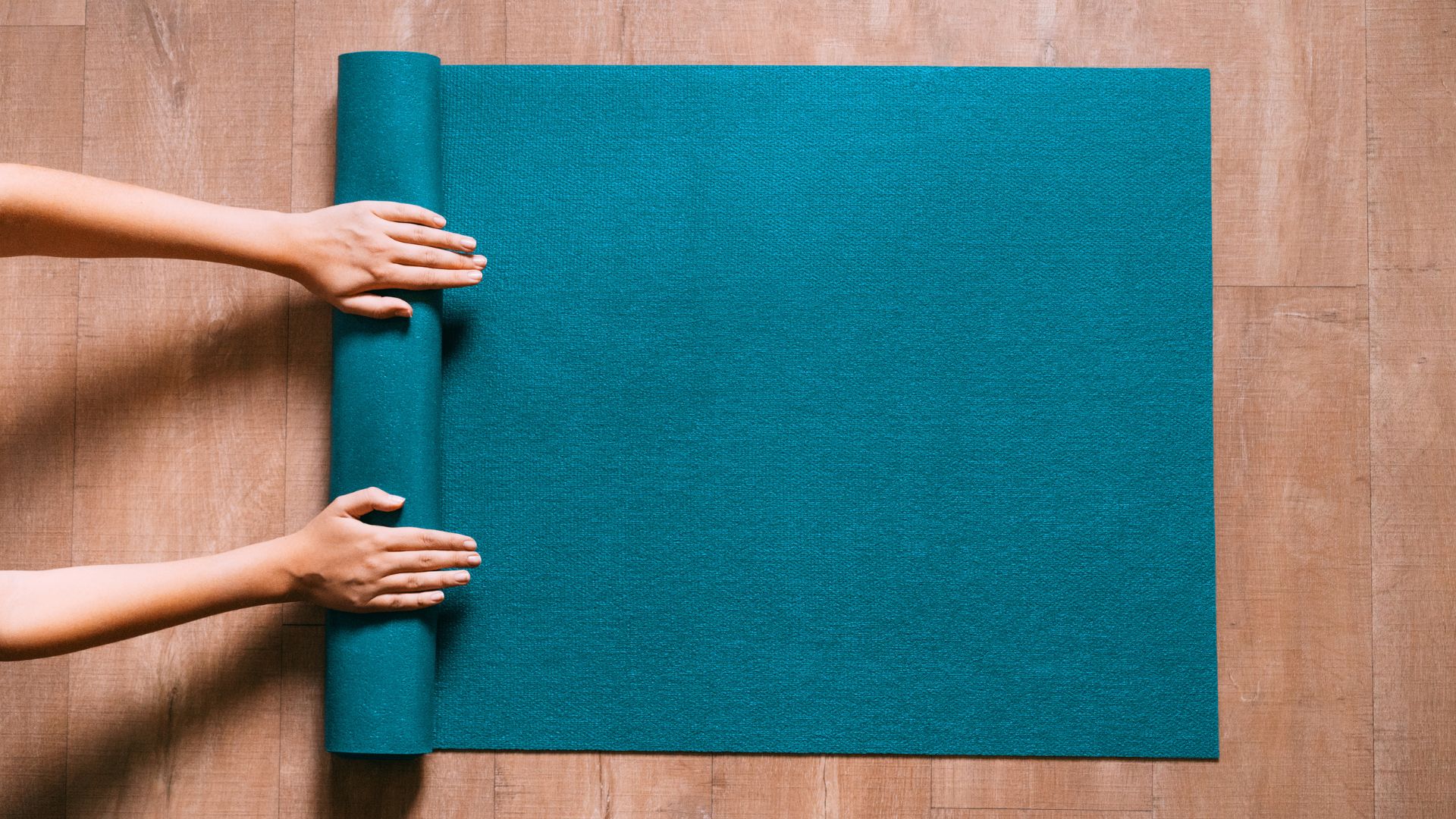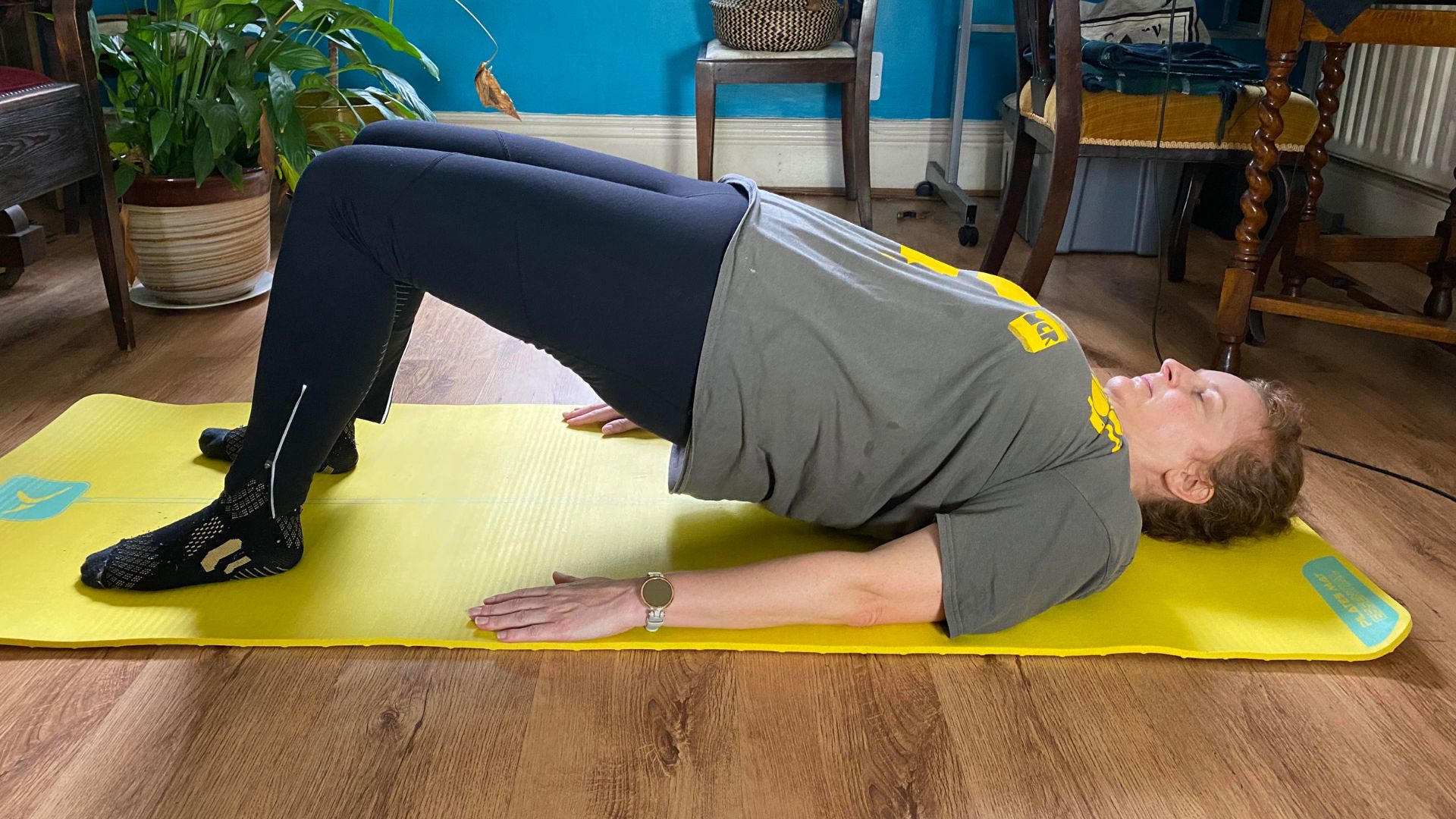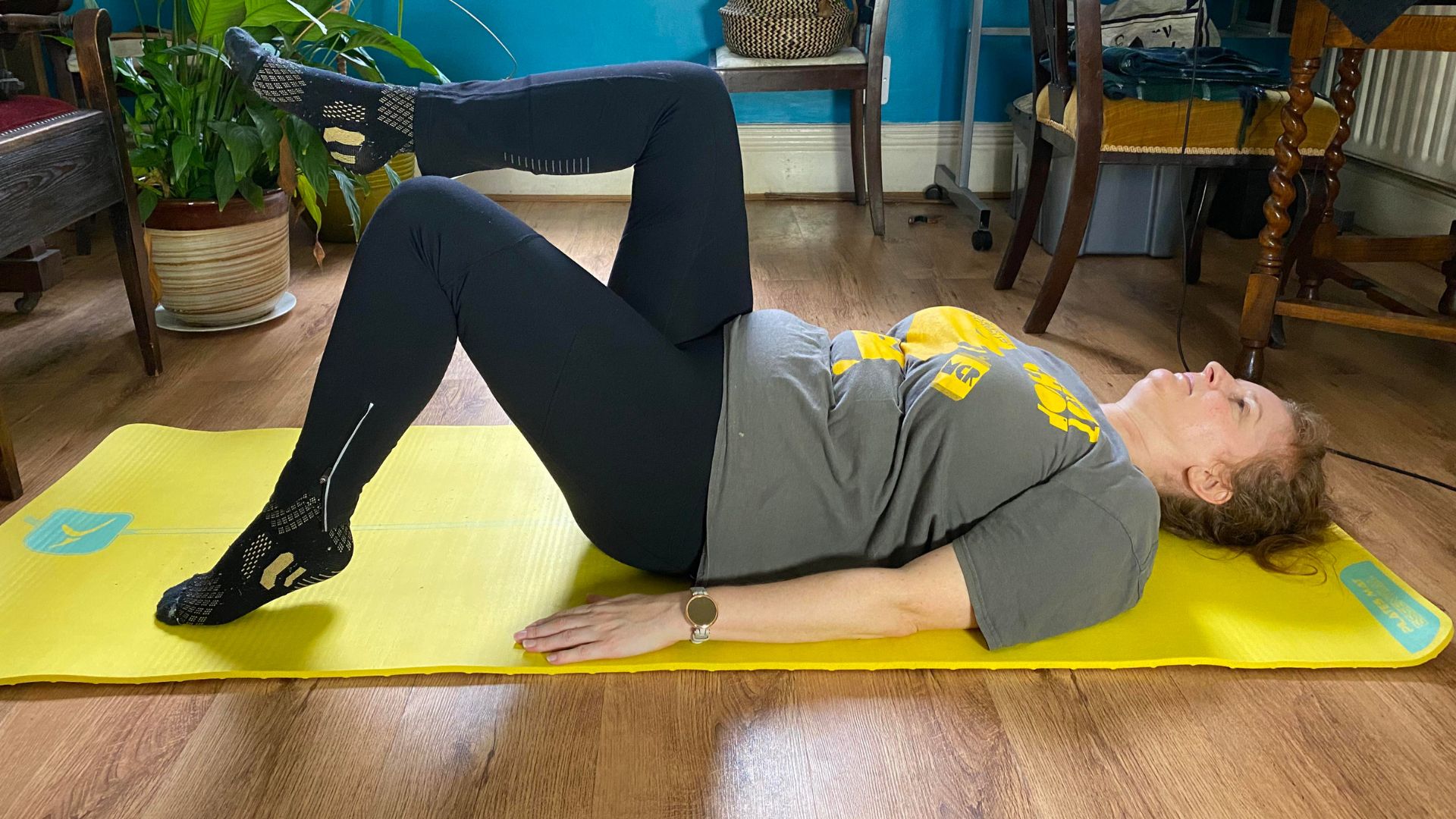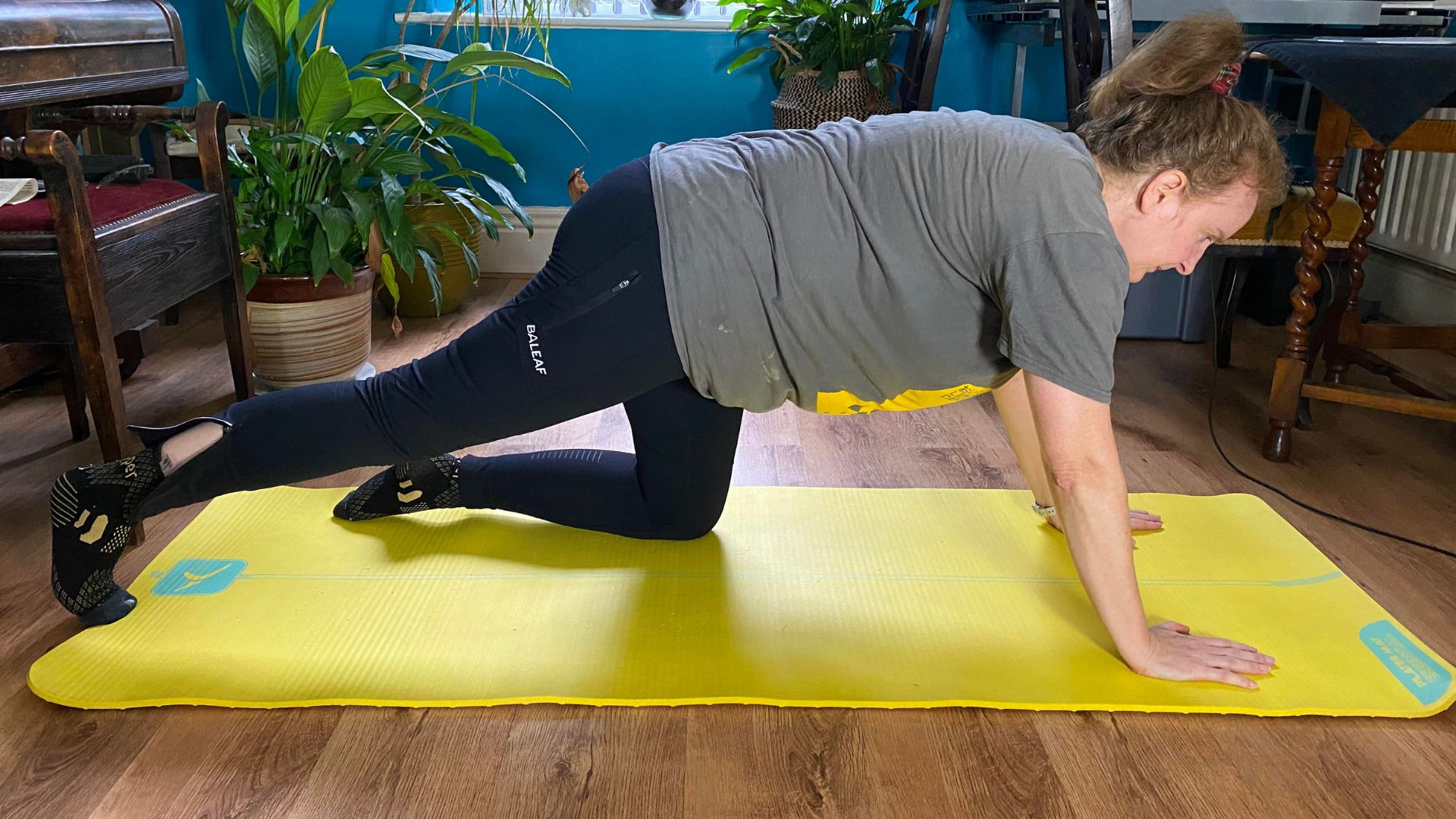
The idea of doing Pilates every day might seem a little intense, but a quick session to start the day can boost productivity and mood, and contribute towards gains in strength and flexibility.
I never considered giving Pilates a proper go until my daughter started doing it and raving about the results, I'll be honest. She’s 27 and I’m 54 so at first I thought it might not be for me and my menopausal body. But the more my daughter talked about the wonders of Pilates and how much she loved it, the more I thought I had to try Pilates for beginners myself.
I learnt very quickly there's not much difference between Pilates vs yoga in many ways. It focuses on building and strengthening muscle, rather than getting your heart rate up like jogging would, so it's not high-intensity exercise. That's not to say it's an easy workout though. After the first day of my Pilates abs workout, my stomach ached in ways I hadn't experienced in years. I could tell I was working muscles I don't use too often.
I go for outdoor exercises like walking or running and strength workouts normally, so I was intrigued to see how digging out my thick yoga mat and sticking to this low-impact exercise for a fortnight could help - and I was pleasantly surprised by the results.
Benefits of doing Pilates every day
1. Pilates builds strength
After just one week of doing Pilates every day, I noticed how much stronger I felt. While my day-to-day strength remained much the same, my weekly strength training routine in the gym felt much easier.
I put this down to how much Pilates strengthens the core muscles, which help us to feel stronger everywhere else as they are key stabilisers in the body.
Andrea Speir, who has been teaching Pilates for 18 years explains how such a gentle form of exercise does this. “The style of movement in both mat and reformer Pilates work elongates the muscles while challenging them and building strength.”
When you move on the mat into repetitive movements, you challenge your muscles against resistance. I used my own body weight for this - but you can also find dedicated Pilates with weights workouts. The combination of repetition and resistance helps improve muscle endurance, boosting strength, and core stability.
2. It helps with flexibility
Thanks to my menopause symptoms, I experience a lot of stiffness in my joints. That, coupled with the fact I work at a desk all day, means I often struggle with my flexibility.
Two weeks of Pilates later and I feel like everything has loosened up. Simply moving around in day-to-day life feels easier with fewer aches and pains, and I can be more fluid in my movements.
Pilates works the mind and body in conjunction with one another though. This additional mobility has helped with a lot of the anxiety I feel around my menopausal aches and pains in turn. One informed the other - my stress and anxiety weren't only eased by exercise, but I was also worrying less about my mobility.

3. Pilates can help you relax
Having done yoga every day for a short time previously, I'm familiar with just how well this meditative type of exercise can help me relax.
As well as physically easing a lot of the stress on my body, Pilates took me out of my daily stresses and forced me to focus on what I was doing with my body. I didn’t have the mental space to think of anything else. This worked in the moment, while I was engaged in the routine and carried me through the hours after the session was over.
But you don't have to just take my word for it. There's plenty of research to back up the idea that working out regularly - regardless of the activity you choose - can have a seriously good impact on your mental health.
A study led by the University of New York, for instance, reveals that simply working out regularly can improve brain functions such as attention span, problem-solving abilities, verbal fluency, and decision-making skills, as well as actively helping to lower cortisol levels (that's the stress hormone) and raise levels of neurotransmitters like dopamine, epinephrine, and norepinephrine (otherwise known as endorphins), which produce that feel-good, post-workout feeling.
The study specifies that either low-intensity or high-intensity activity can offer this benefit and it doesn't matter how long you exercise for, provided you do so regularly enough. So, even a 20-minute Pilates workout can make a difference.

4. Pilates can improve your posture
One of the benefits I had read about that I was most excited to see was improvements in my posture - and after just a week of doing Pilates every day, I noticed a big improvement.
As noted, I work at a desk, hunched over a computer all day, and I often find it hard to remember to sit up straight. After a couple of Pilates classes, I found myself thinking about my posture even outside of the sessions. I'd instinctively consider whether my back was straight and actively try and pull my shoulder blades back and hold my head up. I even tried doing some core exercises at home at my desk. I’m now naturally sitting straighter, feel less heavy, and feel less inclined to slump.
Liz Hilliard, owner and creator of Hilliard Studio Method says this is very much a physical benefit of Pilates, both mat Pilates and wall Pilates. "Pilates promotes the strength of the spine," she explains. "A consistent Pilates practice improves posture as well as flexibility and mobility because a strong core improves balance while flattening the midsection and sculpting the entire body and strengthening the mind."
5. It can help you lose weight
Weight loss wasn't one of my goals in entering this challenge - but I did notice a difference in how my body looked and felt. My workout clothes felt a little looser and I think, with the tightening of my core muscles, my clothes fit me better. Plus, I feel lighter, so I feel like doing Pilates every day lost me inches rather than weight.
This is only to be expected, explains Speir, who is also the co-founder of Speir Pilates. “Pilates is one of the best ways to build lean muscle with low-impact movement, versus high-intensity cardiovascular work, so I wouldn't think of Pilates as a way to lose weight but what you will lose is clothing sizes," she says.
"Essentially, Pilates takes your muscles and stretches them out while building a super-defined and sculpted look, with incredible postural connections due to the major core work (which helps support your spine and stabilise your hips)," she says.
If you are looking to lose weight, doing Pilates for weight loss alongside other forms of cardiovascular exercise may help. Two ideal exercises for weight loss are walking, as it's low-intensity but burns calories, and strength training, which can include Pilates if you incorporate resistance like dumbbells or resistance bands. You'll also need to be in a calorie deficit.
I didn't notice any difference in my actual weight after doing Pilates every day for two weeks, but I certainly felt better in my body, which is the most important thing.

Is it good to do Pilates every day?
Yes, it's perfectly fine to do Pilates every day, says Speir. "Unlike other forms of exercise, you could do the same Pilates session every day and it would become harder and more effective each time because your body is learning how to properly connect, and therefore working harder," she explains.
"Also, there is very little impact or duress placed on the muscles and joints, and there are so many fun and effective ways to mix up and challenge your body in Pilates that it stays fun, creative, and challenging," she adds.
I felt like I could do Pilates every day without it becoming uncomfortable as I stuck to exercises designed to strengthen and support my joints, rather than actively challenge the muscles day in and day out. For me though, keeping things interesting was essential to stop me from getting bored. I think I'd struggle to do the same routine over and over again.
Some days I did somatic Pilates with more of a mindfulness focus, other days I did basic mat Pilates, and other times I tried doing reformer Pilates at home, and this kept things interesting enough for two weeks.
How long does it take to see results from Pilates?
Two weeks of doing Pilates every day probably wasn’t enough to see some of the benefits you’d get over time, such as weight loss, but other results were evident after the first week. My mental clarity improved, my stress levels were lower, and my core was stronger. My posture was also much better.
“You’ll feel the results almost immediately and you'll see results depending on how often you do it,” says Hilliard. “My suggestion is three to four times per week to see results within two to four weeks.”
Speir agrees that consistency is key when it comes to seeing results from Pilates - but she says you don't have to do it every day to see results. "I recommend doing Pilates three times a week for fantastic results, and up to six days a week for absolutely incredible and quicker results," she says. "You would see results in two weeks, but it would mostly be in feeling much stronger and feeling energised. Pilates works such intricate muscles, noticeable physical results are best seen after about six to eight weeks of consistent practice.”
Tips for doing Pilates every day
- Download one of the best Pilates apps: Unless you're committed to funding a daily Pilates habit with serious time and money, it's a good idea to find your Pilates workouts through apps like Apple Fitness+, Les Mills, or a Pilates-specific platform like Glo. A one-month subscription to one of these will help get you started and cost a lot less than classes or a gym membership.
- Invest in a good mat: If you're going to be doing Pilates every day, it's a good idea to invest in a mat that can support this frequency of workout. The best yoga mats come in all shapes and sizes - from foldable options to longer-length mats, to thicker ones up to 15mm to help support your bones and joints.
- Wear something comfortable: If you're doing Pilates every day at home, comfort is important above all else.
- Designate a spot in your home for Pilates: Having a dedicated spot in your home, set up for you to do Pilates every day, means you're more likely to follow through with the practice as you have everything you need and don't have to spend time setting up each morning.







